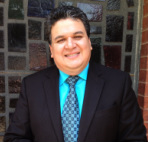This passage from the Old Testament took a new meaning after the resurrection of our Lord Jesus Christ; before Christ’s resurrection this passage was a hope, but after Christ’ resurrection this passage is an assurance.
For centuries, these particular verses gave inspiration to pastors, hymn writers, and musicians, to create wonderful hymns and songs to glorify our risen Savior. One of them was Samuel Medley. He was born on June 23, 1738, at Cheshunt, Herts, where his father kept a school. He received a good education; but not liking the business to which he was apprenticed, he entered the Royal Navy. He was severely wounded during the war against the French, and he was obligated to retire from active service. A sermon by Dr. Watts (the author of “O God Our Help in Ages Past”), was read to him about this time and it led to his conversion. He joined the Baptist Church in Eagle Street, London, then under the care of Dr. Gifford, and shortly afterwards opened a school, which for several years he conducted with great success. Having begun to preach, he received, in 1767, a call to become pastor of the Baptist church at Watford.
Samuel Medley often repeated words and phrases in his songs. In the hymn “I Know That My Redeemer Lives”, based on Job’s passage, Medley repeats over and over the most important concept: “He lives… He lives… He lives.”
Please, enjoy the words of this hymn, for God’s glory.
I know that my Redeemer lives!
What joy this blest assurance gives!
He lives, he lives, who once was dead;
he lives, my ever-living Head!
He lives triumphant from the grave;
he lives eternally to save;
he lives exalted, throned above;
he lives to rule his church in love.
He lives to bless me with his love;
he lives to plead for me above;
he lives my hungry soul to feed;
he lives to help in time of need.
He lives, my kind, wise, heavenly friend;
he lives and loves me to the end;
he lives, and while he lives, I’ll sing;
he lives, my Prophet, Priest, and King!
He lives, all glory to his name!
He lives, my Saviour, still the same;
what joy this blest assurance gives:
I know that my Redeemer lives!
In His service.
Israel.

 RSS Feed
RSS Feed